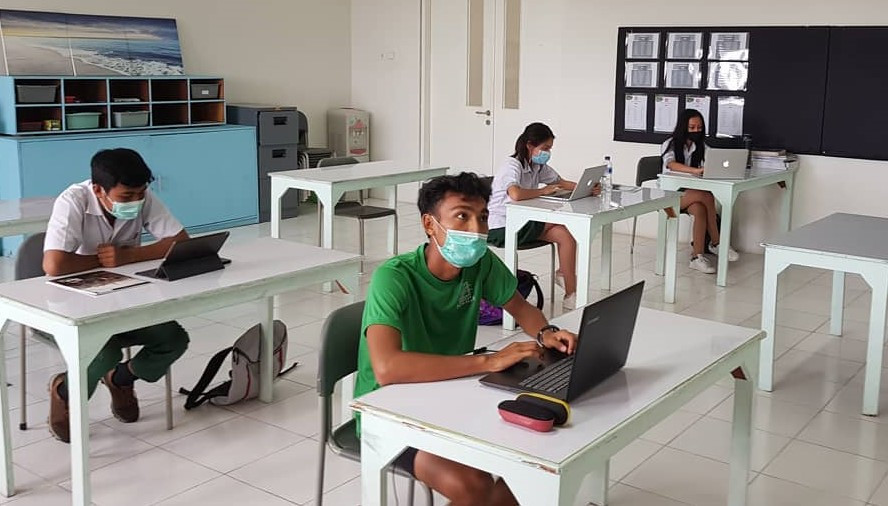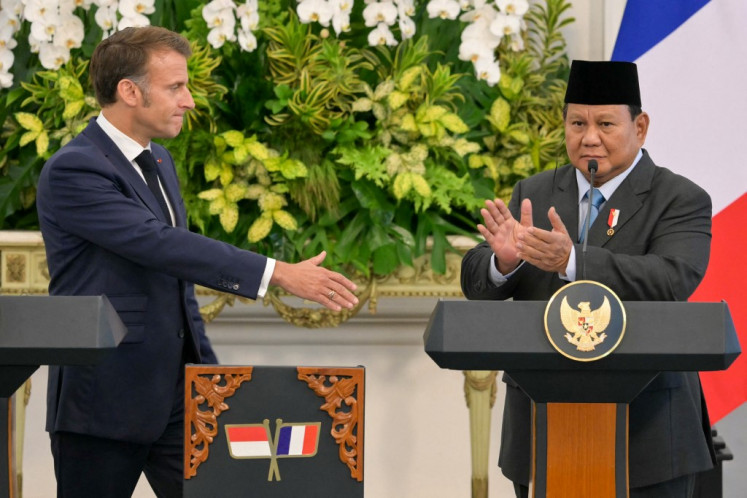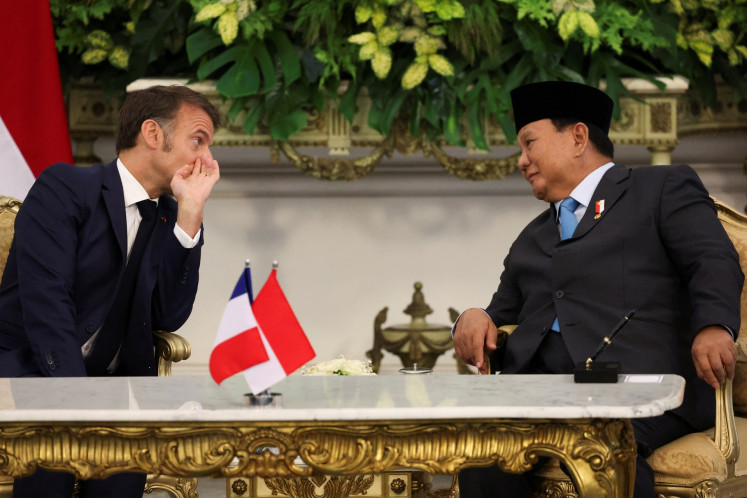Education can’t wait
Fearing a yawning gap in the quality of education in Indonesia, the government has offered an option for schools to resume in-class learning when the new academic year begins in July.
Change text size
Gift Premium Articles
to Anyone

F
or the second year running, we have to commemorate National Education Day on May 2 amid the COVID-19 pandemic, which has forced our children to adapt to online learning, despite the fact that many of them are not ready for the new normal, not to mention the poor infrastructure they have to put up with, particularly if they live in underdeveloped regions.
As happened last year, no festivity marked the day dedicated to the country’s education stakeholders, who aim to fulfill the Constitutional mandate of enlightening the whole nation. The newly installed education, culture, research and technology minister, Nadiem Makarim, led the national observance, which was held online to prevent COVID-19 transmission.
In spite of the sad story of our national education, life must go on and time cannot wait. The misery, in particular the potential loss of learning our children have been experiencing after more than a year of studying from home, does not keep the world from making progress.
Fearing a yawning gap in the quality of education in Indonesia, the government has offered an option for schools to resume in-class learning when the new academic year begins in July. Of course, the initiative has triggered a controversy, but taking no action is not the best policy either.
Nadiem said school reopening was not impossible, provided that health protocol was strictly followed and that schools prepared supporting facilities that would allow the COVID-19 prevention mechanism to work.
In fact, 22 percent of education units have tried face-to-face learning since January, albeit in a limited manner, according to Nadiem. No data is available on COVID-19 transmission in the schools during the trial, but studies have found that children are less likely to transmit the virus.
The government has grown more confident in suggesting school reopening, now that the inoculation of all teachers is underway and is expected to be completed before the new school year begins.
The government has issued a guideline for schools that wish to resume in-person learning. First, students will attend classes in rotation, as the occupancy of a classroom must be limited to half of its capacity to allow for physical distancing. Schools will be given the freedom to arrange face-to-face learning and should keep the option of online learning open.
Second, parents’ consent is imperative. Parents have the right to keep their children from attending in-person classes for safety reasons.
Third, health protocol must be enforced strictly in schools during in-class learning. Everybody has to wear protective masks, maintain a physical distance from others and sign an attendance list. Both teachers and students have to bring their own meals, as school cafeterias may not open. In case an infection occurs, school closure is mandatory.
For better or worse, school reopening should be an option, as should online learning. The pandemic perhaps is a golden opportunity for us to design the best way of learning for our children, given that the advancement of technology may no longer necessitate them to attend classes in the future.
Whether in-class or remote, education is the most powerful weapon we can use to change our fate, if not the world. For that reason, education cannot wait.









